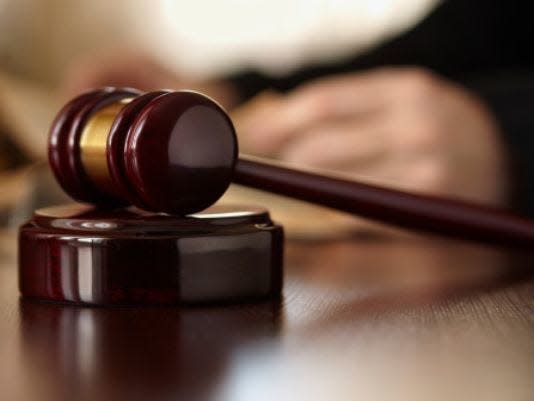Trial to debate South Carolina's death penalty methods begins

A trial to debate the constitutionality of South Carolina's recently imposed death penalty statute begins this morning. The statute, enacted last May, would make the default method of execution the electric chair and implement a firing squad as a second option.
A civil lawsuit filed on behalf of four death row inmates, Richard Moore of Spartanburg, Freddie Eugene Owens and Brad Sigmon of Greenville and Gary Dubose Terry of Lexington, alleged that the two methods are prohibited by the state's constitution as cruel, unusual and corporal punishment.
Here are five things to know before the trial starts:
South Carolina's last execution was in 2011. Since then, the state has struggled to obtain the drugs necessary to perform executions by lethal injection, SC's previous default method of execution. The South Carolina Department of Corrections supply of available drugs expired in 2013.
In May 2021, Gov. Henry McMaster signed legislation to make electrocution the default method of execution and added a firing squad a third option making SC the fourth state to use it. The state attempted to schedule execution dates for Sigmon and Owens a month after the legislation was enacted, but the firing squad policies and procedures were not yet in place, so the executions were stayed.
In March 2022, SCDC said they were officially prepared to perform executions by firing squad, but those details on policies and protocols for how it would be implemented remain sparse. Moore was given an execution date shortly after in April. A few weeks before the execution date, state Circuit Judge Jocelyn Newman denied a motion to dismiss the case regarding the constitutionality of the two methods.
Attorneys for Moore filed for a stay of his execution while the civil litigation played out, but not before he was required to select a method two weeks before his scheduled date. Moore elected the firing squad option but wrote that he did "not believe or concede that either the firing squad or electrocution is legal or constitutional" in a statement to the state Supreme Court. Moore's execution was temporarily stayed on April 20, only 9 days before his scheduled date, while the civil case is heard.
The Greenville News will be providing more up to date information regarding the trial as the day continues.
Kathryn Casteel is an investigative reporter with The Greenville News and can be reached at KCasteel@gannett.com or on Twitter @kathryncasteel.
This article originally appeared on Greenville News: Trial to debate South Carolina's death penalty methods begins
